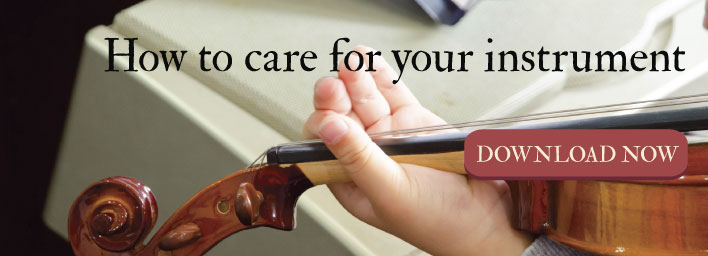What To Do If A String Snaps While Performing

One of the most nerve-wracking experiences for a musician is when a string snaps while in the middle of a live performance. Almost inevitably, this can happen if a string is old, defective, or not installed correctly. Strings can also break from playing too vigorously or because they are an off-brand that doesn’t last long. Whatever the case may be, it’s important to have a plan of action for when it happens to you – because it may happen at some point in the future.
Have a spare set of strings nearby
Your best course of action is to have a spare set of strings near you, either in your coat pocket or under your chair. This can be a lifesaver in the event that a string suddenly snaps while playing. Fortunately, you will have a few minutes in between sets to replace it, but you may also have to do this on the fly within seconds. If you are able to change it without disrupting others around you, do it. If not, just make the most of things until the song is completed, then exit the stage discreetly and change the string. An important note: be sure to install the correct size strings and do not overtune them as they can break again.
Shift to a lower position
String instrumentalists often have the advantage of other players who can fill in sections in the music until this is corrected. Move to the nearest lower position you can and let another player take yours. Keep tempo and keep playing. Just breathe through any anxiety you may have, and roll to another string quickly. As a musician, you know your instrument better than anyone, so use your skills to adjust accordingly.
Make a quick switch with another musician
A. Steinberger, a professional cellist for more than 40 years, shared this answer on Quora: "Swap instruments with someone who doesn't need theirs for the next measure." Steinberger recalled a concert in which Yo-Yo Ma experienced string breakage while playing a concerto. The principal, Ron Leonard, immediately got up and swapped his cello out so Ma could continue playing. Then someone ran offstage to change the strings on Yo-Yo Ma’s cello so it could be returned to him for the rest of the performance.
Check the tuning of your instrument
Very often, particularly with less experienced violinists and other string instrumentalists, the tuning is too tight. This can cause the neck to warp and thus, more than usual string breakage occurs. If your strings keep breaking, check the tuning carefully to ensure you are not overdoing it. Another problem that can cause string breakage includes putting strings on an instrument that is either too large or too small, which can create added stress and loss of tonal quality. Also look for signs of problems with your bow, which can include worn leather or cracks. The instrument itself may also need some attention, if the string has snapped backwards onto the surface of the fretboard. Structural problems with your instrument such as sharp edges along the bridge, the nut, or tailpiece can also damage strings. Smartmusic provides some tips for what areas to inspect. A visit to a local music store can identify any problems with the structure of your instrument to help prevent future breaks.
It depends on the type of event
If you are playing an audition and your string breaks in the middle of a number, immediately stop and ask the judges if you may take a quick break to replace it with a fresh string. Or trade instruments with someone. This is normally accepted. If you are in a live performance, things can be a little trickier. Act naturally and try not to change the pace or intensity of your playing. You don’t want to call any unnecessary attention to the problem. Do your best to get through the performance by choosing complimentary notes from your other strings.
The actual chances that a string breakage will occur while in a live performance are fairly slim, but it’s always a good idea to make sure your instrument is well maintained and has a recently broken in, fresh set of strings on it to prevent this from occurring.


